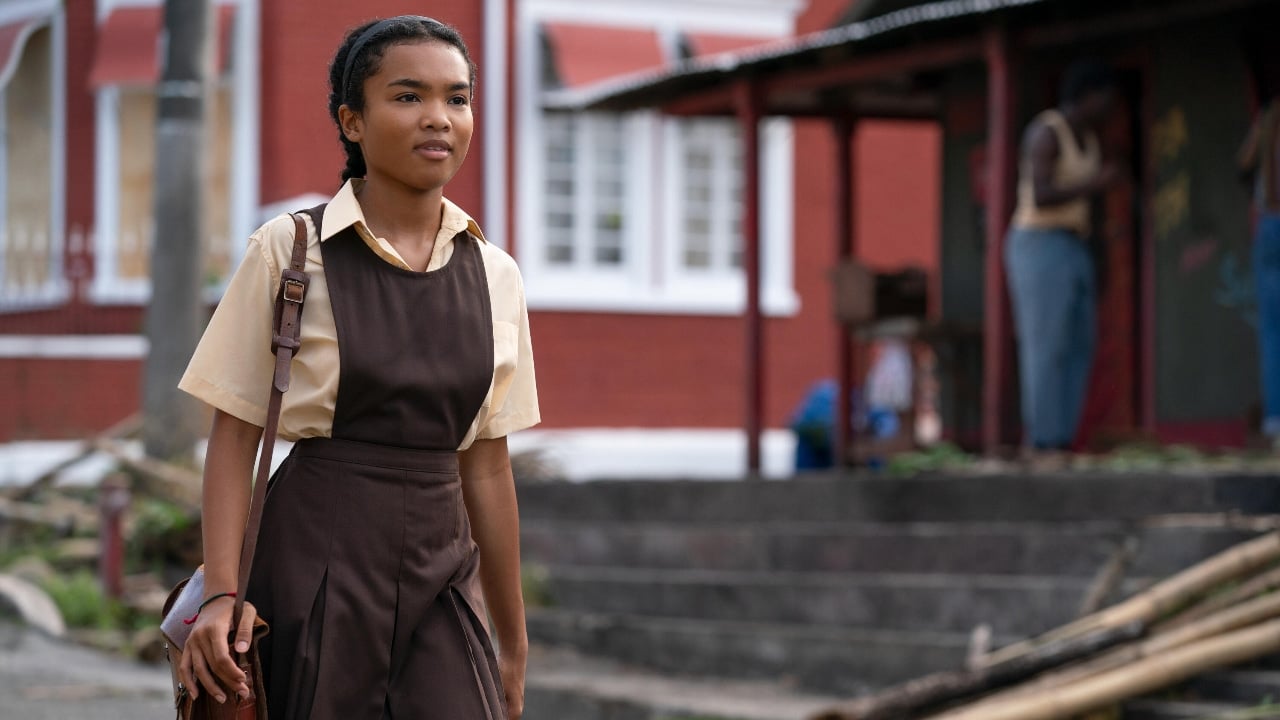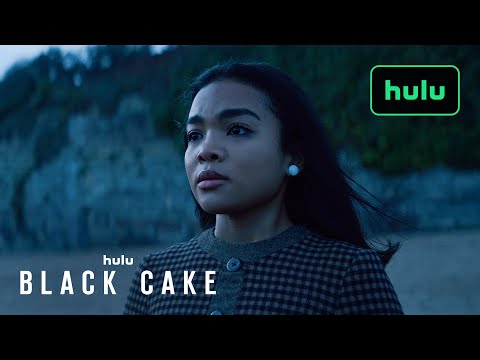‘Black Cake’ Review: Hulu Book Adaption Is A Layered Story Of One Woman’s Journey To America

Hulu’s adaption of Charmaine Wilkerson's debut Black Cake explores a mysterious family tree. It tactfully handles a family uncovering their mother's complicated and often tragic past after her death with layered thought.
Eleanor Bennett (Chipo Chung) dies in Southern California with a history unknown to her family. She leaves behind an estranged daughter, Benny (The Woman King's Adrienne Warren), and an ambitious son, Byron (Top Boy's Bashy), who knew nothing about their mother’s journey to America.
Benny And Byron Learn About Their Mother's History

In her will, Eleanor leaves behind an audio recording full of long-buried secrets. Her adult children, who are not on the best terms, find a note from their late mother: “B and B, there’s a small black cake in the freezer for you. I want you to sit down and share the cake when the time is right. You’ll know when.”
The book and television show take their name from a Caribbean dessert that has its own complicated history. The Caribbean diaspora makes the rim-soaked, fruit-packed dessert during the holidays as a reminder of home. Like the story told in Black Cake, this pudding reminds them of their colonizer's past and a hidden history many wish to forget.
Benny and Byron had grown up comfortably in California, believing they were children of orphaned Caribbean immigrants. Bunny works as an artist in a toxic relationship with her mentor, who fears returning home in fear of disappointing her seemingly perfect mother. Byron has a career as a scientist battling racial discrimination to get to the top of his field.
The Extraordinary Life Of A Caribbean Immigrant

The siblings had always understood their place in America and how their history dictated their present. In Black Cake, their multicultural legacy forces them to change their understanding of identities. The eight episodes address this story well over the course of their runtime.
Black Cake, through audio recordings, narrates the life of the late Eleanor. She was born in the Caribbean as Covey Lyncook (Don't Make Me Go's Mia Isaac), a girl of black and Chinese parentage. Her dream of escaping her poverty-stricken community goes wrong when she is forced to marry a ruthless money lender. After her wedding day goes array, Covey flees her homeland, leaving behind nothing but a wedding dress floating in the ocean.
From there, she lands in Britain as part of the Windrush. The promise of a new life and career in London isn’t quite all it seems. From there, Covery will spend years running and lying until she moves to the United States.
Black Cake is at its best following Eleanor/Covey in the 1950s and 1960s. Mia Isaac delivers a beautifully layered performance as a young woman trying to make the most of her life with one eye looking over her shoulder. However, Black Cake doesn’t go into uncharted territories and makes light work of some of the more complex topics of the time. It portrays Wilkinson’s family history with sensitivity and profundity, never using real-life struggles suffered by islanders for melodrama.
The show suffers when it turns focus away from a young Covey. The modern threads of the Wilkinson family struggle with melodramatic performances and uneven writing. Black Cake loses steam when Mia Isaac is not on screen. Thanks to the on-location shoots and attention to detail, audiences will immerse themselves in history. Her past in London and Edinburgh feels incredibly tactile, while the California landscape comes off generic and forgettable.
The Problem With The Modern Plot

The present-day timescale deals with the ripples of Eleanor’s truth. Benny and Benji handle her revelations poorly, lacking sympathy for her struggles and journey. Their behavior makes them hard to like as characters, primarily when their parents are written as sympathetic protagonists. The performance feels a little bit too melodramatic in comparison to the more grounded performance in the period scenes.
Some late-season revelations may keep viewers on their toes, while others may see it as a cynical twist to keep the plot chugging along. It’s a shame more reveals occur in the weaker, modern timeline, failing to show how it happened and instead relying on the dramatic fallout.
Black Cake offers a delicate journey that forces audiences and Eleanor’s family to look at England’s colonial past, the transatlantic slave trade, and the lies the Windrush generation were sold. Each episode features a separate vignette into islanders' history, all held together but one remarkable woman’s story.
Although the narrative centers on the story of Caribbean immigrants, most audiences can connect with the idea that self-identity comes from a story told by family members. So, what happens when that self-imposed identity gets lost or stolen? This adaption handles the complexities of the source material with grace, balancing all the characters and their separate tales.
Score: 7/10 specs
Black Cake premieres on Hulu November 1st.
